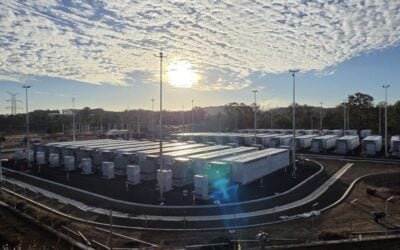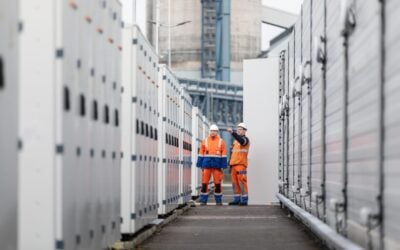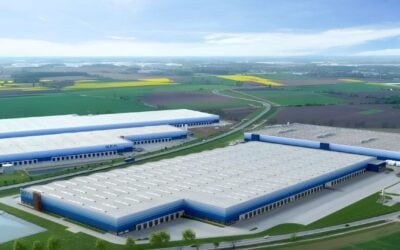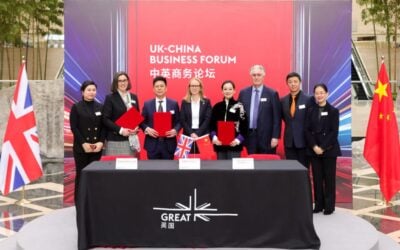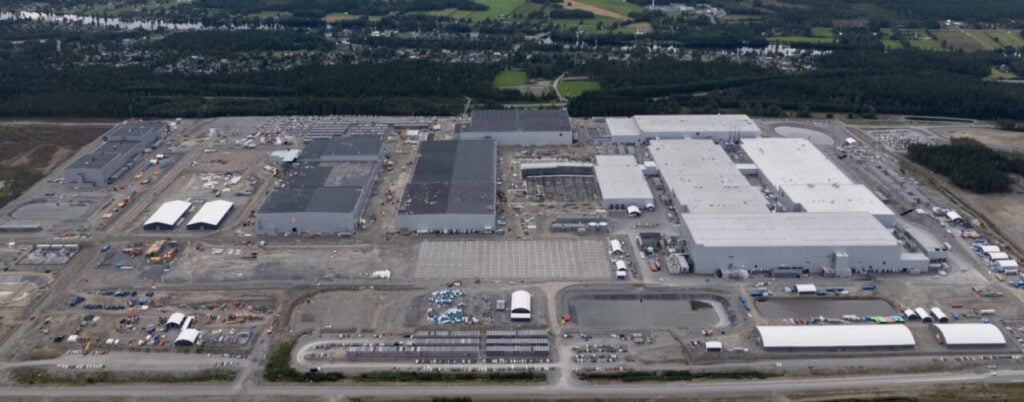
Sweden-headquartered lithium-ion technology Northvolt has concluded its strategic review, revealing it is divesting or ceasing non-core activities, sharpening its focus to battery cell manufacturing and reducing its workforce.
The measures reflect a ‘challenging macroeconomic environment and our subsequent reassessment of Northvolt’s near-term priorities’, the company said on Monday (9 September), and will enable it to focus resources on becoming a leading cell manufacturer.
The thrust of the changes is a ramping up of the first phase of its flagship Northvolt Ett lithium-ion cell gigafactory in Skellefteå and continuing to leverage its research & development (R&D) facility in Västerås, both in Sweden.
Northvolt has two additional sites focused on cathode active material (CAM) production, in Skellefteå and Borlänge. Skellefteå has been put into care and maintenance until further notice and Borlänge has already been terminated and sold. News reports say it will instead buy CAM from established suppliers.
Try Premium for just $1
- Full premium access for the first month at only $1
- Converts to an annual rate after 30 days unless cancelled
- Cancel anytime during the trial period
Premium Benefits
- Expert industry analysis and interviews
- Digital access to PV Tech Power journal
- Exclusive event discounts
Or get the full Premium subscription right away
Or continue reading this article for free
‘In discussions with investors’ for Poland ESS factory
Northvolt also has an energy storage system (ESS) assembly factory, Northvolt Dwa in Gdansk, Poland, which executives discussed with Energy-Storage.news a year ago (Premium article).
Following the strategic review, the company now appears willing to sell the factory entirely. It said it will ‘enter into discussions with potential future partners and investors that can capitalize the production of battery systems and packs’ at the site. One of its first partnerships in the utility-scale space for it was meant to be system integrator Fluence.
Interest rates, EV demand slowdown and competition with US and China
The ‘challenging macroeconomic environment’ the company referred to is three-fold. The first is that interest rates have increased and fundraising has become harder, which would affect Northvolt’s potential for project financing and any debt re-financing.
Electric vehicle (EV) demand growth has also slowed globally, something many have attributed to ‘range anxiety’, affecting the plans of all lithium-ion manufacturers, not just Northvolt – LG Energy is a recent example Energy-Storage.news has reported on.
The third factor is that Europe is now less price competitive for lithium-ion battery cells than East Asia or the US. East Asia and China have always been cheaper, but prices have come down dramatically in the past year while the US’ tax credits for clean energy manufacturing has boosted the business case for gigafactories there, at the expense of Europe. Northvolt’s Norwegian peer Freyr cited this when explaining to Energy-Storage.news why it had taken similar steps to what Northvolt is doing now, late last year.
However, building a battery manufacturing ecosystem in the US is going to be a huge challenge despite the incentives, as heard in a panel discussion at clean energy expo RE+ this week in which Northvolt’s problems were mentioned.
Northvolt has also seen problems in ramping up its activity, something the firm discussed with Energy-Storage.news in March (Premium access), and subsequently saw a €2 billion deal with BMW cancelled in June.
Future for the company
‘While Northvolt’s challenges remain highly relevant in the short-term, they have not changed the long-term foundations supporting Northvolt’s key value proposition’, the company said on Monday.
The firm is committed to its cell manufacturing ventures outside of Ett. That includes NOVO, its joint venture with Volvo Cars in Sweden, and its lithium-ion cell manufacturing projects in Germany (Northvolt Drei) and Canada (Northvolt Six).
Potential revisions to those projects’ timelines will be confirmed during the fall along with any further necessary cost-saving actions, the company said.
Its announcement did not mention its activities in the sodium-ion technology space, where it claims to have co-developed a battery with an energy density of 160Wh/kg with technology firm Altris, though this activity would presumably be at its R&D site in Västerås, which is set to continue.

